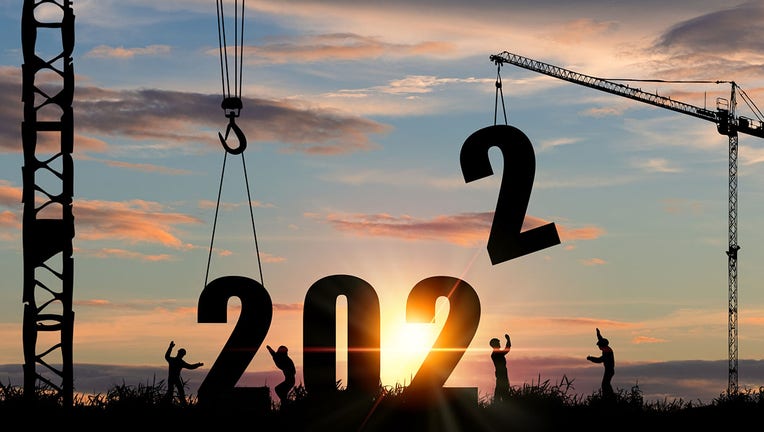Fannie Mae again lowers economic growth outlook: What it means for interest rates

Fannie Mae once again lowered its economic growth forecast. Here's what that means for interest rates. (iStock)
Fannie Mae once again dropped its economic growth outlook amid global supply constraints, growing inflation and consumer-spending concerns.
This marks the third consecutive month that Fannie Mae’s Economic and Strategic Research (ESR) Group lowered its 2021 real gross domestic product (GDP) economic forecast. In September, Fannie Mae forecasted that GDP would hit 5.4% annually in 2021, but it lowered that to 4.9% in October.
"While we still view the supply chain disruptions and, to a lesser extent, labor market tightness as largely transitory, we now expect both to last even longer than we’d previously forecast – and also likely longer than the Federal Reserve anticipated," said Doug Duncan, Fannie Mae senior vice president and chief economist.
"Combined with our expectation that inflation will run above-target over the forecast horizon, we foresee growing clamor from market participants for the Fed to begin tightening monetary policy: first by tapering asset purchases and then, in the fourth quarter of 2022, by raising the federal funds rate target range for the first time since December 2018," Duncan said.
If the Federal Reserve starts tightening monetary policy, interest rates will begin to increase. You can save money on your monthly mortgage payments through a refinance. Visit Credible to enter your information and find your personalized mortgage interest rate without affecting your credit score.
MBA ECONOMIST SAYS INFLATION NOT TRANSITORY: HERE’S WHAT THAT MEANS FOR INTEREST RATES
Inflation isn’t done rising
Inflation is currently rising at record rates, recently increasing 5.4% to hit a 13-year high. But Fannie Mae increased its projection for inflation this year, saying it may not be done going up. The ESR Group increased its forecast from the previous Consumer Price Index (CPI) projection of 5.4% to 5.7% for total 2021 inflation growth.
But Fannie Mae expects the Federal Reserve to begin tapering in order to combat this high inflation level. It said the Central Bank will start tapering its asset purchases by the end of 2021 and could raise the Federal Funds rate as early as the fourth quarter of 2022. Other economists, such as Mortgage Bankers Association (MBA) Chief Economist Mike Fratantoni, said the next rate hike could occur as early as the third quarter of 2022.
Homeowners can save money using low mortgage rates before they increase, by taking out a mortgage refinance. Visit Credible to compare multiple lenders at once and choose the mortgage lender with the best option for you.
INFLATION SOARS TO HIGHEST RATE IN 13 YEARS — HERE'S WHAT THAT MEANS FOR INTEREST RATES
Fannie Mae increases its interest rate forecast
Because of the supply-chain disruptions, economic growth amid the United States' recovery from the coronavirus pandemic, inflation and changes to the Fed’s monetary policy, Fannie Mae is upping next year’s mortgage rate predictions. The ESR Group now predicts interest rates will rise to an average rate of 3.3% in 2022, versus its previous mortgage rate forecast of 3.1%.
For homebuyers, it could mean they might face less competition in the housing market. Fannie Mae said it expects the rate of home price growth to decelerate next year, but it did raise its overall growth predictions for real estate prices. For this year, Fannie Mae increased its projection by 1.8 percentage points, saying home prices will rise 16.6% in 2021, and it increased its predictions for next year by 2.3 percentage points to 7.4% growth in home values.
Fannie Mae said the reason for this home price growth increase in its economic outlook is due in large part to continued tight housing inventory levels. If you are interested in buying a home as competition slows, visit Credible to get prequalified in minutes without affecting your credit score.
FHFA EXPANDS MORTGAGE REFINANCE OPPORTUNITIES FOR LOW- AND MEDIUM-INCOME FAMILIES
"Even a modest tightening of monetary policy would of course impact housing, but we expect the effects to be largely muted given current market conditions," Duncan said. "Mortgage rates may rise in response to the tighter environment, but we expect the severe shortage of homes for sale to remain the primary driver of strong house price appreciation through at least 2022, limiting interest rate effects on home sales and home prices.
"Right now, we forecast mortgage rates to average 3.3% in 2022, which, though slightly higher than 2020 and 2021, by historical standards remains extremely low and supportive of mortgage demand and affordability."
Currently, the latest data from Freddie Mac shows the average 30-year mortgage rate is at 3.05%. If you are interested in taking out a mortgage or a mortgage refinance, contact Credible to speak to a home loan expert and get all of your questions answered.
Have a finance-related question, but don't know who to ask? Email The Credible Money Expert at moneyexpert@credible.com and your question might be answered by Credible in our Money Expert column.

